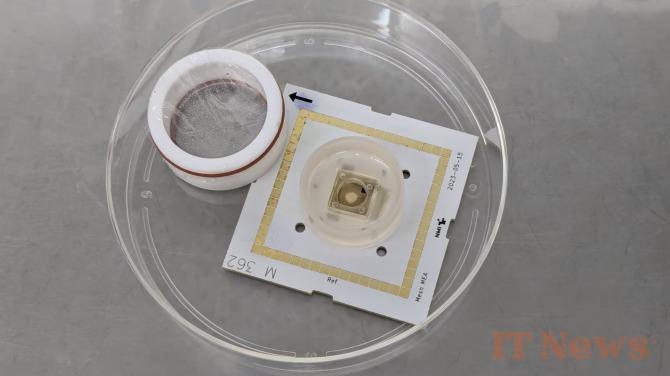What if death were just a detail for artists? Alvin Lucier, a composer who died in 2021, proves that creativity can survive... thanks to a brain cultivated in a test tube. Science fiction? No, just a collaboration between bio-art and ethics.
In an art gallery in Perth, Australia, a strange work attracts the curious: a cluster of brain cells, taken from the blood of Alvin Lucier, generates experimental melodies live.
Connected to a network of electrodes, this "mini-brain" reacts to ambient sounds, composes, and perpetuates the musician's avant-garde spirit. A project signed by bio-artists and validated by Lucier before his death, which pushes the boundaries of posthumous art.
Read also – This AI can create music and adapt to your every request, it's amazing
From blood to cellular synthesizer
It all starts with blood samples taken while he was still alive. Artists Nathan Thompson, Guy Ben-Ary, and neuroscientist Stuart Hodgetts transform his white blood cells into stem cells, then into neurons. The result: brain organoids, placed on a grid of 64 electrodes. These clusters of cells, although tiny, emit electrical signals that are converted into sounds.
In the exhibition room, twenty brass plates equipped with mallets respond to these impulses. Every vibration, every step visitors take, is picked up by microphones and sent back to the neurons, creating a constantly evolving sound loop. In the center, a sculpture houses these cells, allowing the public to observe this miniature "composer" without disturbing it.
Read also: Spotify has found a new idea to make you pay more and it's called AI
Lucier, known for his acoustic experiments, would have loved the concept. His cult work, I Am Sitting in a Room, already played on repetition and sound degradation. Revivification goes further: here, the artificial brain becomes a co-creator, blending biological heritage and interactivity.
"It's a cellular extension of his life, a radical artistic immortality," explains Nathan Thompson. The project asks: who is the author, when the work is born from human neurons, but without consciousness? From an ethical point of view, the debate is open, but artistically, Lucier remains faithful to himself, even after his departure.




0 Comments